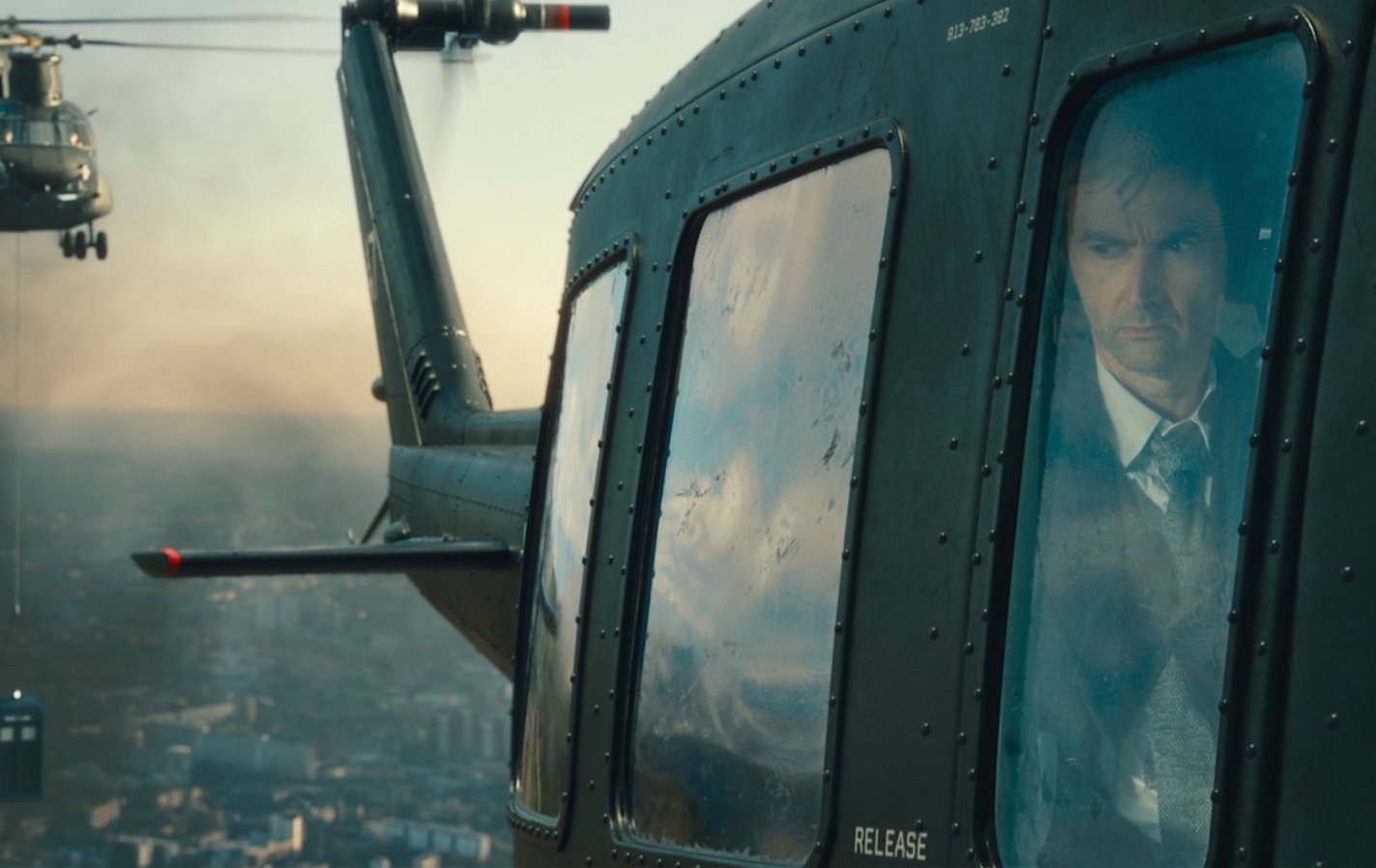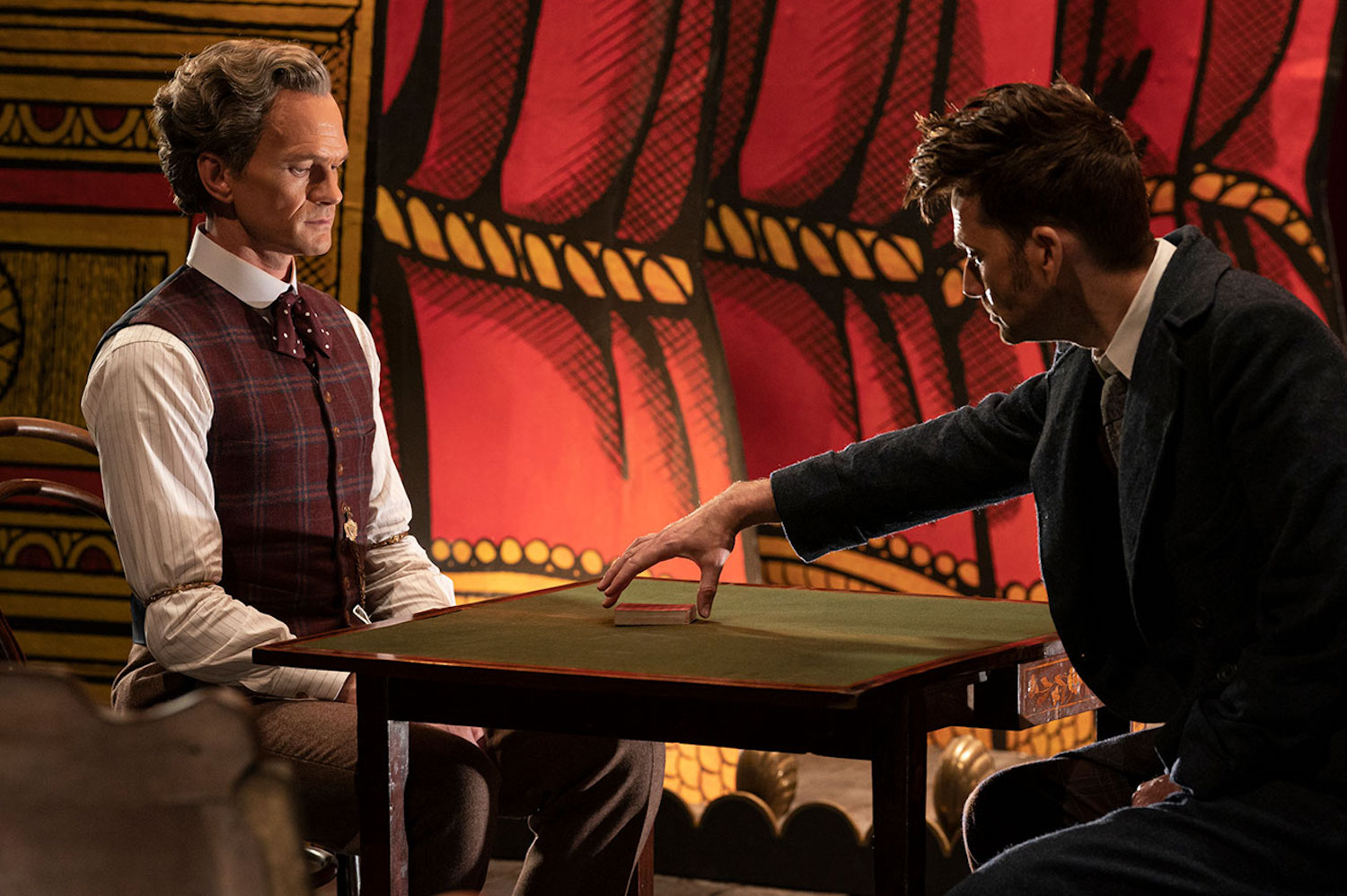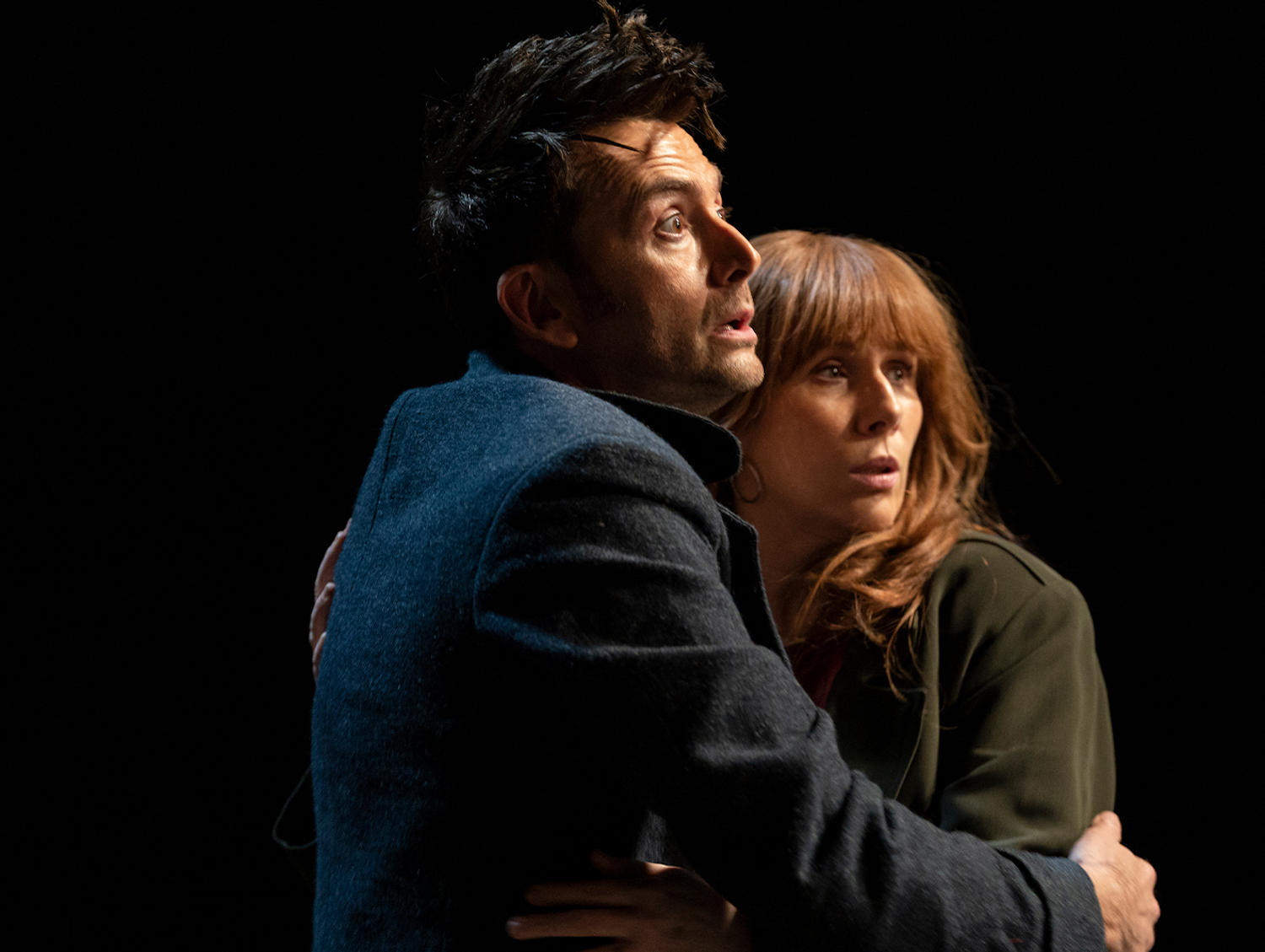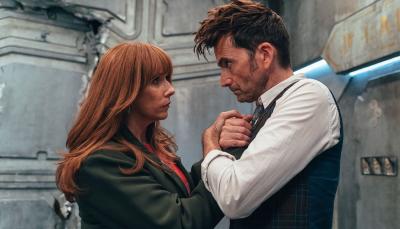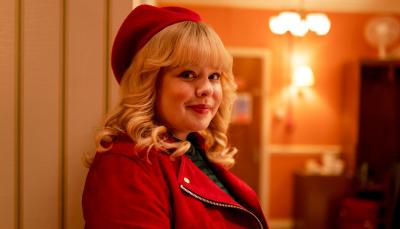The Final 'Doctor Who' 60th Anniversary Special Sets the Franchise On a New Course with "The Giggle"
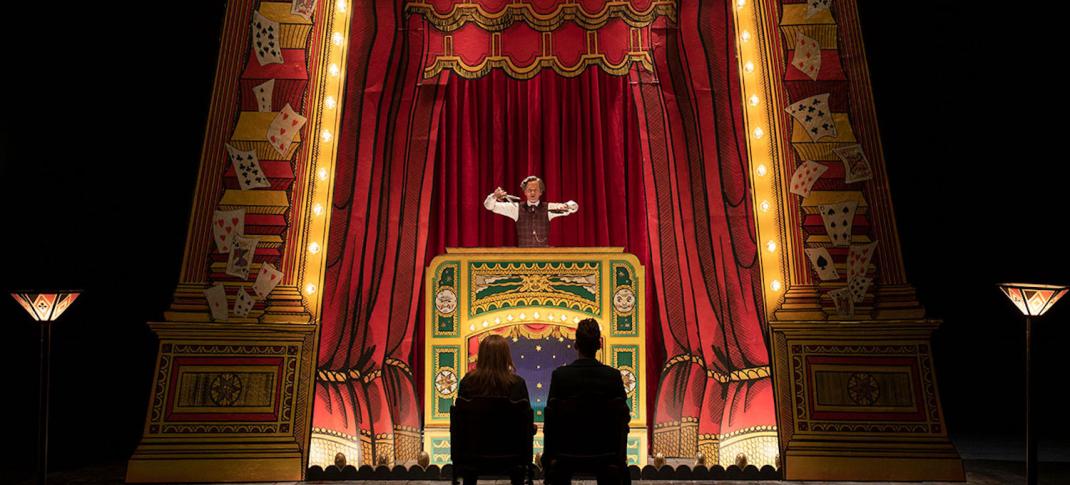
David Tennant, Catherine Tate and Neil Patrick Harris in "The Giggle"
(Photo: Disney+/BBC Studios)
The third and final Doctor Who 60th anniversary special had to serve a lot of masters: Come up with a meaningful way to say goodbye to David Tennant's Fourteenth Doctor and fan favorite companion Catherine Tate, introduce Ncuti Gatwa's new incarnation ahead of his first proper Christmas adventure, and revisit a Classic era villain in Neil Patrick Harris's Toymaker. Plus, you know, give a few quiet moments to returning guest stars like former companion Bonnie Langford and UNIT commander Jemma Redgrave. Did it achieve every goal? No, not really. But that fact doesn't matter as much as it probably should, because showrunner Russell T. Davies's greatest strength has always been his ability to tell stories that, while rarely making sense from a larger narrative or even structural franchise perspective, get the emotional beats exactly right.
Davies loves the Doctor, and it's evident in every line and plot twist throughout "The Giggle," an hour that brings back the (Celestial) Toymaker only to not really do all that much with him, introduces a new Doctor without ever actually retiring the old one, and reminds us that a happy ending is actually the greatest adventure of all. Is Davies perhaps too attached to Tennant as the Doctor? Probably. (I mean, at this point, I'm genuinely starting to wonder if Crowley from Good Omens is secretly some sort of Doctor variant accidentally created way back during the Season 2 "The Satan Pit" two-parter.) But, to Davies and Tennant's credit, both they and the show understand what recent seasons have too often failed to properly convey: The key to this franchise isn't the timey wimey twists or the ridiculous villains it's the big, soppy emotional heart at the center of it, that loves everything about the universe and boy if this whole 60th anniversary situation didn't just embrace that down to the ground.
"The Giggle" is, at its heart, the sort of story that Davies' Who has told before: An old enemy with a vaguely explained ancient grudge against the Doctor launches an end-of-the-world high-stakes threat. Unfortunately, since Harris's Toymaker only appears in this single installment, there's not a lot of room for things like motivation or real depth, beyond vague statements about salt lines and playing games at the end of the universe. As a villain, the Toymaker is precisely the sort of deep cut lore that delights longtime Whovians (complete with a quick flashback to William Hartnell and Michael Gough) but who is entertaining and menacing enough to captivate new viewers. There are creepy dolls, a collapsing Escher-esque funhouse full of seemingly infinite horrors—the dodgy CGI on that poor assistant turned literal puppet somehow made it even scarier—and a riff on the Archangel Network that has allowed Toymaker to broadcast the evil laugh that essentially rots people's brains around the world. (This is the sort of Doctor Who villain we need a lot more of in the months and years ahead; there are, after all, so many times we can see the Doctor face off against Daleks or Cybermen.)
Harris is clearly having a blast, from his ominous monologues to his high-camp Spice Girls dance routine. (His shaky, frequently disappearing, and often over-the-top German accent is a choice I think we can all agree just not to mention possibly ever again.) As an adversary, the Toymaker works best in his smallest moments; we like to forget sometimes, how incredibly old the Doctor truly is, how many millennia he has witnessed, and how hard that is for almost anyone, even the people who love him, to truly understand. The Toymaker is similarly eternal and while he has (as Fourteen rightly points out) turned all that power and longevity toward causing chaos and enabling the worst of seemingly every type of creation, there is still a level at which he and the Doctor understand each other. It's why the moment the Doctor offers to go play games in the stars with him to save Earth is so powerful. He knows what it is to be alone.
(It's all very Master-like, honestly. Thank goodness someone rescued that tooth.)
But, of course, what everyone will be really talking about after this episode is the "biregeneration" twist, a completely made-up bit of nonsense that was surely created almost solely to make sure that Tennant's Doctor is still around just in case the man himself suddenly feels like doing a few extra special adventures or a mini spin-off at some point in the future, all while still officially giving the keys to the TARDIS (or at least a TARDIS) to Gatwa. It's the sort of twist Davies loves, something that will give you a migraine if you think about it too hard, but that makes your heart feel so full and satisfied, you're willing to sort of handwave the dodgy bits.
Is Gatwa's Doctor the fifteenth regeneration or a sort of Fourteen+ clone that splits elements of his character the same way the two split their outfit? Is that a new TARDIS or just a copy of the original? Which of them actually got Hartnell's TARDIS? Will Fourteen regenerate again when he dies properly? Are there two Doctors running around right now? Or is this just an inelegant way of partitioning off what us old-timers consider "NuWho" and essentially starting over with the Disney+ era? (There are rumors that they're planning to rebrand Gatwa's first season as Season 1 again, after all.) We'll probably have to all just make up our own headcanons for this in the end.
But the thing is, is that Gatwa is so instantly good, and he and Tennant are so incredibly charming together, that it's really easy to just smile, nod, and step right past the bit where Davies will never answer those questions in any real depth. Their tag-team takedown of the Toymaker is honestly delightful, as is Gatwa's instant chemistry with both Tate and Langford. (Doctor's girls forever, they are.) And Fourteen, so obviously weary and worn out, finally getting told that it's okay if he stops carrying the burdens of the universe for a moment, has a literal decade's worth of emotional weight behind it.
Why it is this particular incarnation of the Doctor that deserves a chance at rest—and not, say, Eleven, who dedicated the end of his life to saving Trenzalore, or Twelve, who spent a billion years punching a wall, or Thirteen, who saw her foundational understanding of herself crumple before she wiped out half the universe in the Flux—is unclear. (The most obvious answer is probably that Tennant is Davies's Platonic ideal of the Doctor, it's why he brought him back in the first place.) But it's hard not to compare this regeneration to Tennant's first, when Ten fought so long and so hard to avoid letting go of the life he had loved. Here, the predominant feeling is one of peace, even though there's technically not really a regeneration at all. at least not in the traditional sense.
But the idea that peace is the final great adventure, the one that asks the most of you because it requires you to forgive yourself for your past mistakes, is honestly incredible. It's a radical act, like hope and love, and all those big, mushy things we're meant to remember take real work and effort and aren't just the prize you win at the end of a game. That we get to see this Doctor do that, honestly, it's a gift. Not to mention that I love the idea of Fourteen getting to rest for a bit with the family he made, finally talking out his guilt trauma with Donna and Wilf, occasionally taking Rose on TARDIS trips, and inevitably helping Mel with some sort of weird alien calculations for UNIT. (And what a gift Langford still is, by the way, where's that UNIT spin-off, Disney??) It's the one thing I'm not sure I ever thought I'd see on Doctor Who—a genuine happy ending.
All three Doctor Who 60th anniversary specials are now streaming on Disney+. Ncuti Gatwa's Doctor will return this Christmas with "The Church on Ruby Road".

